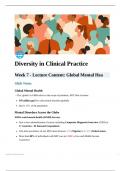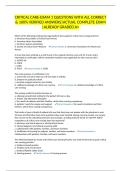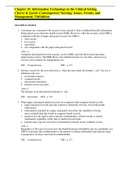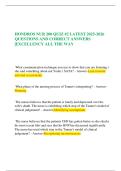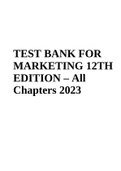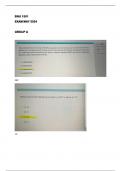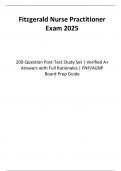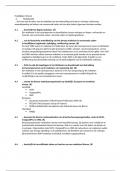🌐
Diversity in Clinical Practice
Week 7 - Lecture Content: Global Mental Hea
Slide Notes
Global Mental Health
→The ‘global’ in GMH refers to the scope of problems, NOT their location.
970 million ppl live with mental disorders globally
that is 13% of the population
Mental Disorders Across the Globe
WHO world mental health (WMH) Surveys
face to face administration of survey including Composite Diagnostic Interview (CIDI) in
17 countries - 85 thousand respondents
Life-time prevalence of any MD varies between 12% (Nigeria) to 47.4% (United states).
More than 80% of individuals with MD’s are in LMICs (Low and Middle Income
Countries)
Diversity in Clinical Practice 1
, MD account for 8.8% and 16.6% of the total burden of disease in LMICs
Meta-Analysis on Prevalence of serious MD in refugees - Patane et al 2022
Refugees + Migrants General Population
Major Depression 27% 4.4%
Bipolar Disorder 6% 0.6%
Psychosis 1% 0.28%
PTSD 24% 1.1%
Emic vs Etic Approaches
→Emic approach - social anthropologists + cultural psychiatrics
Human experience is shaped by culture and there is no such thing as universal psychiatric
symptoms.
→Etic Approach - Clinicians + epidemiologists
Core symptoms of psychopathology are product of universal biological or psychological
process.
Emergence of GMH
Shift 1: How should we approach MH?
-Biomedical approach → Social determinants of MD
Shift 2: Where should MH care be delivered?
-Deinstitutionalization : institutional care → community care
Community Providers within the Health Sector : community health workers, school nurses or
counsellors, workplace health providers.
Community Providers Outside The Health Sectors:
Formal: teachers, police, social workers, youth workers
Informal: Village elders, traditional healers, faith group members, other community leaders
including peers, family, and friends with mental health conditions.
Shift 3: Who should deliver MH care?
Diversity in Clinical Practice 2
, Professional VS non-professionals
Traditional Healing
- 50% of ppl seeking formal HC for MD choose traditional or religious healers as first
providers.
→ Delays in accessing formal MHC
-Some evidence that psychosocial interventions delivered by traditional healers can be effective
in addressing mild symptoms but poor quality of research
Little evidence for severe mental illnesses.
Shift 4: “Nothing about us, without us”
Lived with experiences, ‘experts by experience’
A fundamental, right-based component of the ethos of MH care provision and research.
Historical Context
→ Institutionalized psychiatric care developed in Islamic world - 8th century
Included both physical and psychosocial treatments
→ Psychiatric Institutions established in Europe approx. 12th-15th century
during colonialism, spread of mental asylums across Africa and Asia
Across many LMIC, metal asylums still dominant form of MHC
Historical Context Continued
1950s-1960s: Shifts from Institutional Care to Community-Based MHC:
increased belief in efficacy of CBMH
Disadvantages of institutionalisation - abusive conditions, negative effects.
Cost of institutionalisation
Discovery of antipsychotics - chlorpromazine 1954
Appreciation of human rights of individuals with MD
Global MH Research
Diversity in Clinical Practice 3
, →From 1970s: integration of emic + etic approaches to interdisciplinary cross-cultural
psychiatry approach.
→From 2000s: Epidemiological studies across diverse populations and in LMICs
→After 2005: Large Randomized Controlled Trials - RCTs appeared
MH Treatment Gap
→Discrepancy between people in need of MHC, and people receiving MHC.
Range: 1.6% in Nigeria to 17.9% in USA
Reasons for this: Stigma + poor access + limited financial resources MHC
→Discrepancy between people in need VS receiving MHC
MH Treatment gap Syrian Refugees:
Turkey: 88-90%
The NLs: 42-60%
mhGAP Action Programme - WHO 2008
→The mhGAP package consists of interventions for prevention and management for priority
conditions.
Aim to scale up care for mental, neurobiological, and SUD.
Focused on LMICs
mhGAP Intervention Guide
Diversity in Clinical Practice 4
Diversity in Clinical Practice
Week 7 - Lecture Content: Global Mental Hea
Slide Notes
Global Mental Health
→The ‘global’ in GMH refers to the scope of problems, NOT their location.
970 million ppl live with mental disorders globally
that is 13% of the population
Mental Disorders Across the Globe
WHO world mental health (WMH) Surveys
face to face administration of survey including Composite Diagnostic Interview (CIDI) in
17 countries - 85 thousand respondents
Life-time prevalence of any MD varies between 12% (Nigeria) to 47.4% (United states).
More than 80% of individuals with MD’s are in LMICs (Low and Middle Income
Countries)
Diversity in Clinical Practice 1
, MD account for 8.8% and 16.6% of the total burden of disease in LMICs
Meta-Analysis on Prevalence of serious MD in refugees - Patane et al 2022
Refugees + Migrants General Population
Major Depression 27% 4.4%
Bipolar Disorder 6% 0.6%
Psychosis 1% 0.28%
PTSD 24% 1.1%
Emic vs Etic Approaches
→Emic approach - social anthropologists + cultural psychiatrics
Human experience is shaped by culture and there is no such thing as universal psychiatric
symptoms.
→Etic Approach - Clinicians + epidemiologists
Core symptoms of psychopathology are product of universal biological or psychological
process.
Emergence of GMH
Shift 1: How should we approach MH?
-Biomedical approach → Social determinants of MD
Shift 2: Where should MH care be delivered?
-Deinstitutionalization : institutional care → community care
Community Providers within the Health Sector : community health workers, school nurses or
counsellors, workplace health providers.
Community Providers Outside The Health Sectors:
Formal: teachers, police, social workers, youth workers
Informal: Village elders, traditional healers, faith group members, other community leaders
including peers, family, and friends with mental health conditions.
Shift 3: Who should deliver MH care?
Diversity in Clinical Practice 2
, Professional VS non-professionals
Traditional Healing
- 50% of ppl seeking formal HC for MD choose traditional or religious healers as first
providers.
→ Delays in accessing formal MHC
-Some evidence that psychosocial interventions delivered by traditional healers can be effective
in addressing mild symptoms but poor quality of research
Little evidence for severe mental illnesses.
Shift 4: “Nothing about us, without us”
Lived with experiences, ‘experts by experience’
A fundamental, right-based component of the ethos of MH care provision and research.
Historical Context
→ Institutionalized psychiatric care developed in Islamic world - 8th century
Included both physical and psychosocial treatments
→ Psychiatric Institutions established in Europe approx. 12th-15th century
during colonialism, spread of mental asylums across Africa and Asia
Across many LMIC, metal asylums still dominant form of MHC
Historical Context Continued
1950s-1960s: Shifts from Institutional Care to Community-Based MHC:
increased belief in efficacy of CBMH
Disadvantages of institutionalisation - abusive conditions, negative effects.
Cost of institutionalisation
Discovery of antipsychotics - chlorpromazine 1954
Appreciation of human rights of individuals with MD
Global MH Research
Diversity in Clinical Practice 3
, →From 1970s: integration of emic + etic approaches to interdisciplinary cross-cultural
psychiatry approach.
→From 2000s: Epidemiological studies across diverse populations and in LMICs
→After 2005: Large Randomized Controlled Trials - RCTs appeared
MH Treatment Gap
→Discrepancy between people in need of MHC, and people receiving MHC.
Range: 1.6% in Nigeria to 17.9% in USA
Reasons for this: Stigma + poor access + limited financial resources MHC
→Discrepancy between people in need VS receiving MHC
MH Treatment gap Syrian Refugees:
Turkey: 88-90%
The NLs: 42-60%
mhGAP Action Programme - WHO 2008
→The mhGAP package consists of interventions for prevention and management for priority
conditions.
Aim to scale up care for mental, neurobiological, and SUD.
Focused on LMICs
mhGAP Intervention Guide
Diversity in Clinical Practice 4


